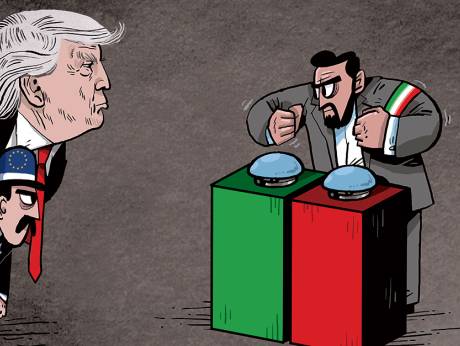Mohammad Jamil
Last week, COAS Qamar Javed Bajwa visited Quetta and met with Hazara leaders and representatives of protesters. According to release from Inter-Services Public Relations (ISPR), they informed the COAS and his team of their reservations on the target killings in Quetta. The Army chief, while observing and analysing the security situation in Quetta, offered condolences and Fateha prayers for the deceased during the meeting to end the sit-ins. Chief of Army Staff said: “We shall defeat hostile attempts through national cohesion. Anything and everything which is for the betterment of security of people of Pakistan shall be done.” After a meeting with Chief of the Army Staff General Qamar Javed Bajwa, the leaders of the Shia Hazara community called off their protest reposing trust in him, as they as well as the entire nation know that he is a man of words.
In June 2012 also, a strike had been called by an ethnic Hazara political group in Quetta one day after a deadly attack on a bus carrying Shia pilgrims. The death toll from the attack rose overnight to 13, including two policemen, who were killed when an explosion hit the bus. The banned Sunni militant group, Lashkar-e-Jhangvi, admitted having carried out the attack. In January 2013, 96 people belong to Hazara community were killed; and a month later 84 were killed in an attack on vegetable market. Since then frequency of attacks on them had reduced, but recently there is a renewed wave of attacks on them. However, April 2018 has been a nightmare for the community. Two men belonging to Hazara community were killed on 21st April and on 28th April two more were killed. It was in this backdrop that Hazara community had protested for over a week.
After the elected government in Balochistan is in place, people of Balochistan feel proud that they are masters of their own destiny. They hold military in very high esteem because it has helped bring peace to the province, and contributed a lot to the welfare of the people by providing health and education facilities in addition to what the provincial government is doing. Various governments in the past, whether military or elected, had followed the policy of appeasement and mollycoddling the illusive sardars, chieftains and local wielders who have been riding a rough shod over Baloch people. Billions of rupees were poured into the provincial treasury from the centre but one would not see any worthwhile project with first-class educational facilities in diverse fields and disciplines for the commoner Baloch youth. There is a perception that during previous governments’ tenures those sums landed into the pockets of tribal sardars.
This was the reason that the common Baloch youth was very disgruntled, very angry and in a very nasty mood. If one dispassionately examines the situation one would reach the conclusion that on one hand strong centre syndrome reflected in the formation of One Unit in 1955 and on the other centrifugal tendencies on the part of some Baloch sardars were responsible for continuous confrontation and crisis in Balochistan. It goes without saying that people of Balochistan have the first right over minerals and other natural resources of Balochistan. Army has played an important role in creating confidence in the Baloch people and has been instrumental in making thousands of Baloch youth join the army, who have taken oath to defend the integrity of the motherland. Though Balochistan is an area of barren lands, deserts and mountains, yet it has mineral resources and above all Gwadar Port.
Addressing Munich Security Conference in February 2018, COAS General Qamar Javed Bajwa highlighted Pakistan’s contribution to the war of terror and exposed West’s role in creating Frankenstein monsters. Bajwa said: “Pakistan has been instrumental in the disruption and decimation of Al-Qaeda from Afghanistan and Pakistan. The Army Chief went on to say that more than 35,000 Pakistanis have lost their lives in the war against terrorism and over 48,000 are critically wounded or disabled whereas the financial cost exceeds US $250 billion (directly and indirectly, which is shared fractionally by the global partners. I can say with pride and conviction that there are no organized terrorist camps on our side of the border. However, presence of terrorists of various hues and colours cannot be ruled out. We still have their active and sleeper cells that are hiding in mountains, border towns and 54 refugee camps, besides some major towns and cities.”
Though military has dismantled the infrastructure and network of all terrorist organizations, Pakistan is still in the vortex of violence having different dimensions. Before 1980s, sacrilege of or targeting mosque or Imambargah was unheard of in Pakistan. It is true that differences between Shia and Sunni could be traced back to 1400 years, but both sects have been living peacefully in Pakistan as well as throughout the world. Unfortunately, terrorists, who claim as true followers of Islamic teachings, in fact negate the Islamic teachings of peace, love, humanity and kindness. It is because of those misguided elements that Islam is one of the most misunderstood religions of the world whose real spirit is being intentionally concealed and distorted. It is deplorable fact that some Muslims are also contributing to the flawed perception of Islam due to their ignorance and limited knowledge. Of course, Pakistan’s enemies are stoking sectarianism to divide the nation to weaken it.



